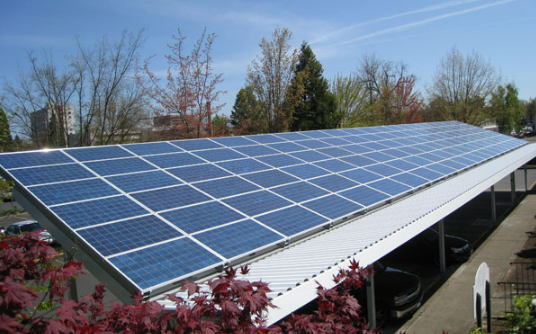With the trend toward renewable energy on the rise, solar energy is receiving more and more attention as an important source of clean energy, and the introduction of federal and state solar incentives in the U.S. in 2024 has certainly given new impetus to the growth of the solar industry. This article takes a closer look at these incentives, analyzing how they can make solar systems more economically viable, as well as the potential energy-saving benefits for the average home and business.
Overview of U.S. State Solar Incentives in 2024
The federal solar tax credit allows you to receive a tax credit equal to 30% of the cost of your solar system on your tax return. In addition, many states offer local solar subsidies and incentives that can be combined with federal tax credits. Importantly, to qualify for most solar incentives, you must own a solar system; consumers who lease solar panels are not eligible.
Solar panels are still expensive initially, even though prices have dropped by 40 percent over the past decade. As a result, federal, state, and local governments have introduced a number of favorable incentives to help ease this burden for consumers. The federal government offers solar tax credits in every state, and residents can also apply for state solar subsidies and incentives, and in some cases, free solar panels. The amount of state solar tax credits will vary depending on where you live, but can make solar panels more affordable when combined with the federal solar credit.
Federal Solar Investment Tax Credit (Solar ITC)
The Federal Solar Investment Tax Credit, also known as the Residential Clean Energy Credit, runs through 2034 and provides a tax credit equal to 30 percent of the total cost of a solar system. The federal solar tax credit has been around since 2005 when it was created to make it easier for property owners to invest in solar panels. While initially set to expire in 2006, it has since been extended several times by Congress.In 2022, the Inflation Mitigation Act extended the tax credit through 2034 and reset the amount to 30 percent, with a slight decrease over the next two years.
How to Claim the Federal Solar Tax Credit
In order to receive the 30 percent tax credit in 2024, complete and submit IRS form 5695 (PDF) after your solar panels are installed.The IRS provides instructions to help you fill out the form correctly. Once reviewed by the IRS, you will receive a 30% savings in the form of a tax credit on your annual tax return this year. If the amount of the credit exceeds the amount of taxes you owe, you can carry the remaining amount over to the next year until you receive the full amount.
Types of Solar Incentives
There are different types of solar incentives at the federal, state, and local levels. Depending on where you live, you may be eligible for multiple incentives. Here is a list of some of the most common types of federal and state solar panel incentives:
- Tax credits
- Solar panel subsidies
- Low-interest loans
- Solar Renewable Energy Certificates (SRECs)
- Performance-based incentives (PBIs)
- Property and sales tax exemptions
- Net metering
| State | Solar Panel Incentives |
| California | Net Metering: Homeowners who had complete permission to operate applications submitted before April 15, 2023, are entitled to NEM 2.0 rates, which are more consumer-friendly. Under NEM 3.0, credits can be earned on utility bills for sending solar power to the grid, although at a lower rate than under NEM 2.0.
Property Tax Exemption: If solar panels are installed before the end of 2024, increased property taxes are exempted. Sales and Use Tax Exemption: Solar panels and other solar equipment are exempt from sales and use tax in California. Self-Generation Incentive Program: Installation of a solar battery for home or business qualifies for a rebate of 15-20% of the battery cost. |
| Texas | Austin Energy Residential Solar Rebate Program: Residents in Austin who complete Austin Energy’s solar education course may qualify for a $2,500 rebate.
Garland Power & Light EnergySaver Solar Rebate Program: If Garland Power & Light is your utility company and you install solar panels, you can receive bill credits for every kWh of excess solar your system produces. Oncor Electric Residential Solar Program: Oncor customers with solar panels and battery storage installed may qualify for a variety of utility rebates and incentives. Property Tax Exemption: Installation of solar panels in Texas qualifies you to apply for an exemption from increased property taxes. TXU Energy Home Solar Buyback: TXU Energy customers can receive bill credits for excess solar power generated by their system. |
| Florida | Property Tax Exemption: Residents who install solar panels won’t pay additional property taxes due to an increase in home value.
Sales Tax Exemption: Solar energy systems are exempt from sales tax in Florida. |
| North Carolina | Property Tax Exemption: Residents owning a solar system not used to generate income or in connection with a business are exempt from paying increased property taxes for their solar panels. |
| Nevada | Solar Easement Laws: Nevada’s solar easement laws prohibit restrictions on solar (and wind) energy systems. For example, a homeowners’ association cannot ban solar panels in your neighborhood.
Partial Property and Sales Tax Exemptions: The Renewable Energy Tax Abatement program offers partial sales and use tax as well as property tax reductions for renewable energy installations, including solar panels. Solar owners get a 55% property tax abatement for 20 years after installation and only have to pay a 2.6% sales and use tax on their panels. |
| Arizona | Mohave Electric Cooperative SunWatts Renewable Energy Rebate: Residents who install solar panels may qualify for multiple solar panel rebates from this utility company.
Property Tax Exemption: Residents who install solar panels in Arizona aren’t required to pay taxes on the increased value of their home. Residential Solar and Wind Energy Systems Tax Credit: Arizona provides a statewide tax credit equivalent to 25% of the cost of your solar panels, capped at $1,000. Sales Tax Exemption: If you purchase solar panels in Arizona, you are not required to pay sales tax. |
| Georgia | Solar Easement Laws: Georgia’s solar easement law protects your right to sunlight. For example, a tree on your neighbor’s property cannot grow to a height that blocks your sunlight according to this law. All easements must be formally documented in Georgia. |
| New York | NY-Sun Program: The NY-Sun program provides various financial incentives for installing solar panels. It funds the Megawatt Block Incentive (a rebate program that offers funds based on your system size) and the state’s community solar program.
Residential Solar Tax Credit: New York offers a state solar tax credit of 25% of the cost of your solar panels, capped at $5,000. |
| Virginia | Property Tax Exemption: If you own solar panels and your property value increases because of your solar system, you may qualify for a partial or total exemption from higher property taxes.
SREC Program: Under the Virginia Clean Economy Act, the state must generate at least 1% of its electricity from solar. Owning solar panels allows you to earn one SREC for every megawatt-hour of energy your system produces and sell SRECs to your utility company. |
| Colorado | City of Boulder – Solar Sales and Use Tax Rebate: Boulder residents receive a 15% refund on sales and use tax paid after installing a solar system.
Property Tax Exemption: Residents of Colorado aren’t required to pay increased property taxes if the value of their home rises after installing solar panels. San Miguel Power Association Rebate Program: Customers of this utility may qualify for a rebate of up to $300 for installing a residential solar panel system. |
| Massachusetts | Solar Massachusetts Renewable Target (SMART): The SMART program pays customers of Massachusetts utilities a fixed amount for every kilowatt-hour of energy produced by residential solar panels.
Supplier Rebat: Various electricity suppliers in Massachusetts offer solar rebates based on your system size. Contact your supplier for details. |
| New Jersey | Property Tax Exemption: If your property value increases after installing solar panels, you won’t have to pay higher property taxes.
Sales Tax Exemption: You don’t have to pay sales tax when purchasing a solar panel system. Successful Solar Incentive (SUSI) Program: SUSI, which replaced New Jersey’s SREC program in 2021, offers a certificate (SREC-IIs) valued at $85 for every 1,000 kWh of solar energy generated by a system. Like SRECs, you can sell SREC-IIs to utility companies. |


























